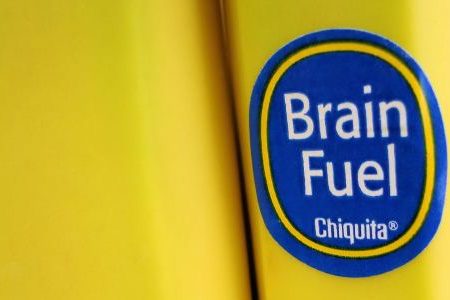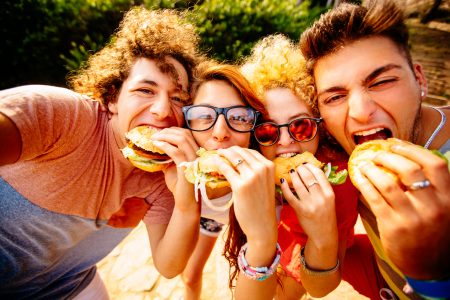The compensatory effects of food
The economic crisis has resulted in many budget cuts in health care and general care programs. The population as a whole is aging, and yet we desire to stay independent as long as possible. How can we retain the cognitive abilities supporting independence?
Age-related cognitive decline
Aging is the major risk factor for diseases such as Alzheimer’s and Parkinson’s, which are caused by degeneration of brain resources. However, even in the absence of such diseases, normal aging is associated with a general loss of brain resources and a decline in perceptual, sensory and cognitive abilities. Most importantly, the decline in dopamine formation and number of dopamine receptors leads to a decrease of available dopamine levels in the brain. Dopamine is a chemical that serves communication in the brain and is mainly important for the cognitive functions related to the prefrontal cortex. The decrease of dopamine levels as a result of aging results in impairments in working memory, executive functions (mainly planning, decision making and non-automatic behavior), and episodic memory (also see this overview).
These cognitive abilities are very important for remaining independent. We need our working memory to remember things for a short period of time, for instance when buying groceries (especially when we have forgotten our grocery list). Executive functions are needed to access information, and form and implement solutions, for instance when cooking a meal. Because being independent requires these skills and hence the cognitive abilities that support these skills, impairment in these cognitive functions means a loss of independence. The decrease of dopamine levels in the brain, as discussed above, certainly makes it more difficult to retain these abilities.
As Hippocrates (Greek physician, 460 BC - 377 BC) once said “Everyone has a doctor in him or her; we just have to help it in its work. The natural healing force within each one of us is the greatest force in getting well. Our food should be our medicine. Our medicine should be our food.”
So, how can we use food to retain the cognitive abilities we need to remain independent?
Food such as cheese (mainly cottage cheese and ricotta), almonds, avocados, and bananas contain phenylalanine and l-tyrosine. These substances can form tyrosine - an important amino acid used as a building block for proteins. Tyrosine is the precursor of dopamine, which means that it precedes dopamine in the neurochemical pathway. So, if we can increase the intake of phenylalanine and l-tyrosine we can actually increase dopamine formation in the brain. This means that the right types of food can actually compensate for the decline of dopamine levels in the brain. Besides food we could use food supplements such as L-tyrosine, Vitamin B6 and L-Phenylalanine that work in the same way as described above.
It should be noted that the more physical activity a person is taking the more tyrosine will be transformed into dopamine. So perhaps engaging in physical activity should be the first step towards retaining cognitive abilities, and hence, independence.





